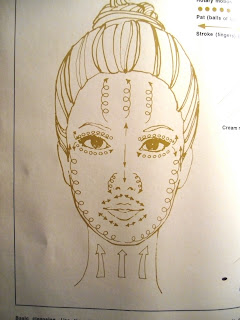THE DOCTORS PRESENT
"ARE YOU MY BEAUTY?"
When you have body dysmorphic disorder, you intensely obsess over your appearance and body image, often for many hours a day. You may seek out numerous cosmetic procedures to try to "fix" your perceived flaws, but never will be satisfied. Body dysmorphic disorder is also known as dysmorphophobia, the fear of having a deformity.
Treatment of body dysmorphic disorder may include medication and cognitive behavioral therapy
- Preoccupation with your physical appearance
- Strong belief that you have an abnormality or defect in your appearance that makes you ugly
- Frequent examination of yourself in the mirror or, conversely, avoidance of mirrors altogether
- Belief that others take special notice of your appearance in a negative way
- The need to seek reassurance about your appearance from others
- Frequent cosmetic procedures with little satisfaction
- Excessive grooming, such as hair plucking
- Extreme self-consciousness
- Refusal to appear in pictures
- Skin picking
- Comparison of your appearance with that of others
- Avoidance of social situations
- The need to wear excessive makeup or clothing to camouflage perceived flaws
- Nose
- Hair
- Skin
- Complexion
- Wrinkles
- Acne and blemishes
- Baldness
- Breast size
- Muscle size
- Genitalia
IF YOU ARE NOT MY DOCTOR
WHY ARE YOU TRYING TO FIX ME?
It's not known specifically what causes body dysmorphic disorder. Like many other mental illnesses, body dysmorphic disorder may result from a combination of causes:
- Brain chemical differences. Some evidence suggests that naturally occurring brain chemicals called neurotransmitters, which are linked to mood, may play a role in causing body dysmorphic disorder.
- Structural brain differences. In people who have body dysmorphic disorder, certain areas of the brain may not have developed properly.
- Genes. Some studies show that body dysmorphic disorder is more common in people whose biological family members also have the condition, indicating that there may be a gene or genes associated with this disorder.
- Environment. Your environment, life experiences and culture may contribute to body dysmorphic disorder, especially if they involve negative experiences about your body or self-image.
- Having biological relatives with body dysmorphic disorder
- Childhood teasing
- Low self-esteem
- Societal pressure or expectations of beauty
- Having another psychiatric disorder, such as anxiety or depression
Complications that body dysmorphic disorder may cause or be associated with include:
- Suicidal thoughts or behavior
- Repeated hospitalizations
- Depression and other mood disorders
- Anxiety disorders
- Obsessive-compulsive disorder
- Eating disorders
- Social phobia
- Substance abuse
- Low self-esteem
- Social isolation
- Difficulty attending work or school
- Lack of close relationships
- Unnecessary medical procedures, especially cosmetic surgery
- The need to stay housebound

























